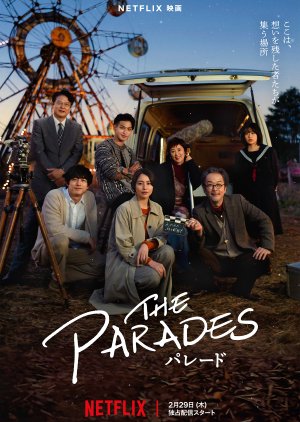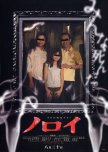
The Parades (2024): A Poignant Exploration of Loss and Connection
"The Parades," directed by Michihito Fujii, takes viewers on a heartfelt journey through the afterlife, exploring themes of love, loss, and the power of human connection. The story follows Minako, a mother searching for her son after a devastating calamity, who gradually comes to terms with her own passing and finds herself in a realm of restless spirits.Strengths:
⪼ Emotional resonance: The film excels at capturing the profound emotions associated with loss and grief. Minako's unwavering love for her son and the struggles of other characters to find closure resonate deeply with viewers.
⪼ Unique portrayal of the afterlife: The film's portrayal of the afterlife, with its "parades" where the deceased search for the living, is both visually stunning and thought-provoking. It creates a space for exploring unresolved relationships and the lingering bonds between life and death.
⪼ Compelling characters: Each character in the film, from Minako to the other residents of the in-between world, has their own unique story and motivations. This adds depth and complexity to the narrative.
Weaknesses:
⪼ Uneven pacing: The film occasionally struggles with pacing, with some scenes feeling rushed while others linger too long. This can disrupt the emotional flow of the story.
⪼ Light on plot: While the film excels in its emotional core, the overall plot remains relatively simple. Viewers seeking a more complex narrative may find themselves wanting more.
Overall:
"The Parades" is a visually stunning and emotionally resonant film that explores universal themes of love, loss, and the power of connection. While the pacing and plot could be tighter, the film's strengths lie in its heartfelt portrayal of grief and its unique depiction of the afterlife. It is a film that will stay with viewers long after the credits roll, prompting reflection on life, death, and the bonds we forge with others.
Recommendation:
This film is a good choice for viewers who enjoy emotional dramas with supernatural elements and who are interested in exploring themes of loss and the afterlife. However, those seeking a fast-paced plot with multiple twists may find it lacking.
Was this review helpful to you?
Cozy, yet melancholic and thought provoking
What happens when we die, or rather, how do we leave things behind? That seems to be the central theme of this movie. We meet a group of people who are no longer living but not quite dead yet either. We get to know all of the characters and their attachments and ultimately get to see them have satisfactory conclusions and move on. The highlight of this movie has to be the parade scenes themselves. I have no words to describe the beauty of those shots, all I can say is that they made me feel I was looking at the universe from up close and afar at once and every light was captivating.The acting is very well done. I watched it for Ryusei Yokohama and although he didn’t have that big of a part, he really captivated the audience. He always takes on different roles and impress me. The music and sets of the movie are also great. I particularly enjoyed the caravan/ post apocalyptic yet cozy vibe of their little camp.
To summarize this is a film not about death, but about aftermath and memories. It’s general message is optimistic and well delivered and it is definitely worth checking
Was this review helpful to you?
Good movie that could have been much better.
Overall I liked the movie but I often found the transitions in character arcs and major plot points clumsy and difficult to follow. For example, the how of someone crossing over and the role of the 'warden' were left under explained. Still despite the flaws the good aspects including the characters and acting held my attention until the end. The Korean series 'Missing: The Other Side' seems to have inspired much of the world building in this movie but the Korean version did a much job of explaining important aspects. For example, when someone passes over the Missing series shows it happening, whereas here the viewer must pick it up from context and the presence of the warden, but his role here isn't really clarified until well into the film.Was this review helpful to you?










































